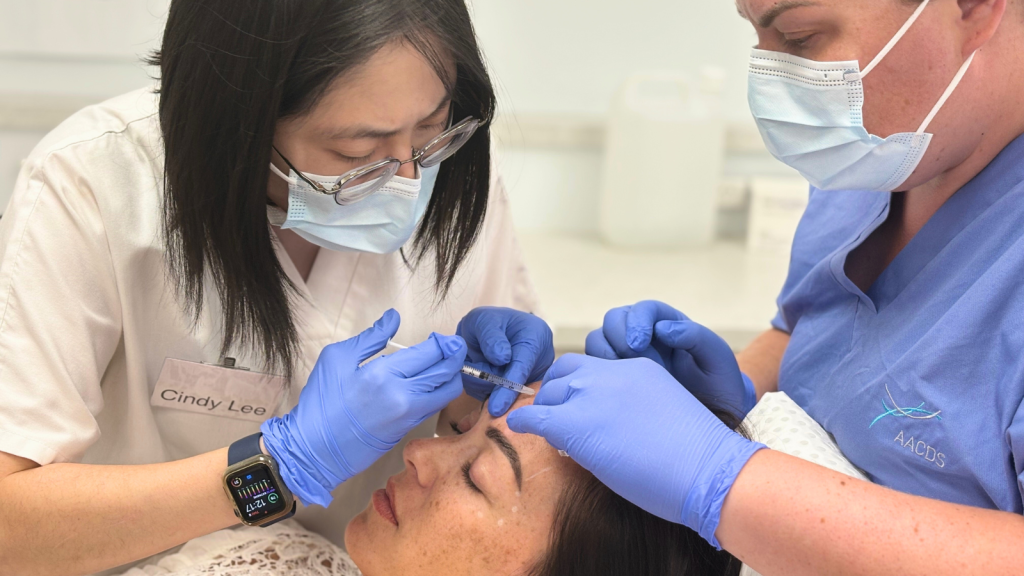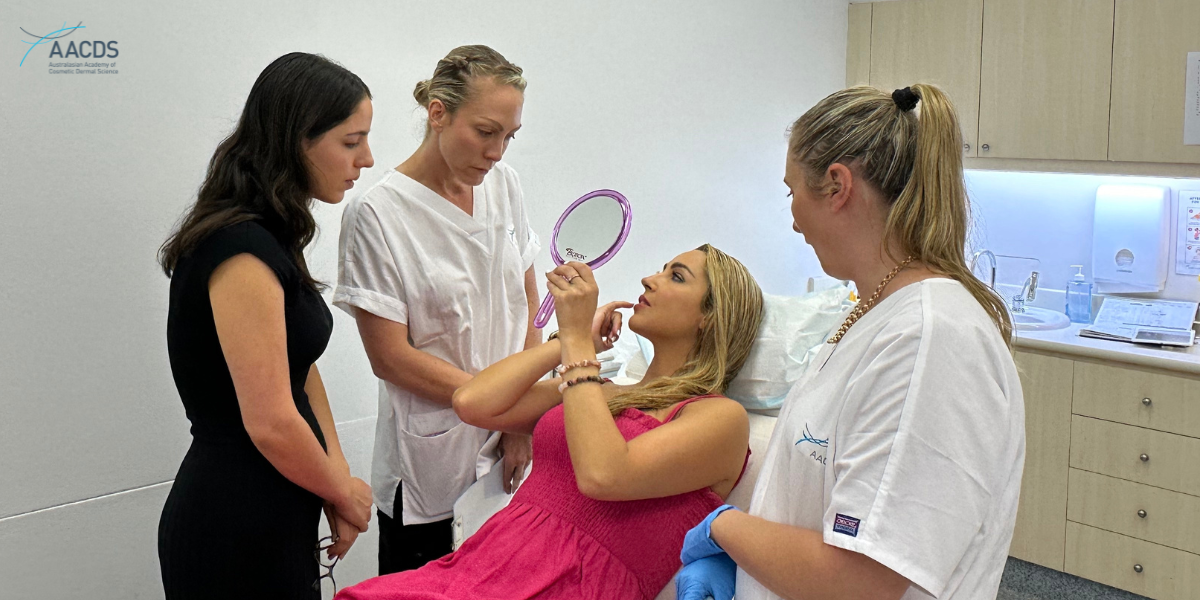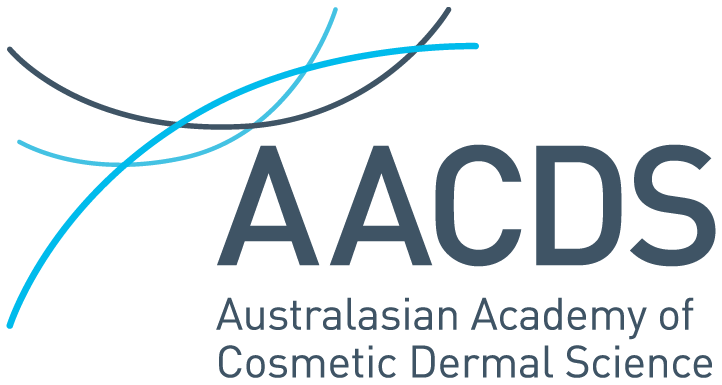How to become a cosmetic nurse in Australia: Your pathway to a rewarding career

The field of cosmetic and aesthetic nursing continues to attract attention in Australia. Many nurses are drawn to the blend of science, artistry, and client care that these roles can offer. However, the pathway to becoming a cosmetic nurse is more complex than it may first appear, especially with changing Ahpra guidelines and regulatory expectations.
In this guide, you’ll learn what qualifications are needed, how to gain experience, what courses to consider, and the skills that can help grow your career in this industry.
What qualifications do you need to become a cosmetic nurse?
The starting point is registration as a Registered Nurse (RN) with the Australian Health Practitioner Regulation Agency (Ahpra). This involves completing a Bachelor of Nursing, or a postgraduate nursing degree if you already hold a prior bachelor-level qualification.
In line with recent Ahpra updates, nurses entering cosmetic practice are expected to gain at least 12 months of general nursing experience before performing non-surgical cosmetic procedures, including cosmetic injections. This period helps build skills in patient safety, clinical decision-making and managing complications.
“We’re seeing clearer expectations around minimum experience, because cosmetic nursing is a patient safety role, not just a skillset,” explains Dr Keturah Hoffman, Head of Cosmetic Medicine at AACDS. It’s a gentle reminder of why qualifications matter in protecting both patients and practitioners.
Many nurses build this experience in areas like surgical nursing, dermatology, or even emergency nursing before moving into aesthetics.
What cosmetic nursing training should you complete?
Once you are an experienced registered nurse, you can explore postgraduate qualifications specific to cosmetic nursing. In Australia, recognised, accredited courses are the safest way to develop knowledge and skills in non-surgical cosmetic practice.
For example, the 52919WA Graduate Diploma of Cosmetic Nursing and Injectables may help you build knowledge in cosmetic consultation, dermal therapies, patient assessment, and safe delivery of non-surgical cosmetic procedures under appropriate medical oversight.
Importantly, any treatments involving Schedule 4 medications, including muscle relaxants, can only be performed by a nurse under a prescribing practitioner’s supervision, and subject to state legislation.
Short or unaccredited two-day courses are increasingly seen as inadequate.
“Complex skills take time to learn. You can’t learn cosmetic medicine in a weekend,” explains Dr Hoffman. “Our graduates need structured, supervised education to develop genuine confidence.”
Why dermal therapies matter
Dermal therapies are an important skillset in cosmetic nursing, especially if the scope of nurse-delivered injectable procedures changes in future. Treatments like skin rejuvenation, micro-needling, advanced peels and laser therapy are valuable skills that make you more employable and versatile in a cosmetic medical clinic.
“Teaching dermal therapies gives nurses more than one tool in their toolkit,” Dr Hoffman explains. “It means they can still work safely and ethically, even if certain procedures become restricted.”
Industry challenges to consider
Cosmetic nursing roles are competitive. Many new graduates discover that employers prefer nurses with solid dermal therapy skills, consultation experience, and a strong understanding of patient safety principles.
Entry-level roles in injectables are often limited, and it is common for new graduates to start in dermal or skin-focused roles before progressing.
Dr Hoffman also notes that the days of nurses quickly launching solo businesses may be numbered. “Ahpra is encouraging models of care with medical oversight. So we want graduates to expect to work within a collaborative team, not assume they’ll open their own clinic straight away,” she says.
Future regulatory shifts, including possible changes to telemedicine, could impact how nurses manage independent cosmetic practices.
If you’d like to explore the different career pathways available, take a look at our article on cosmetic nursing careers for inspiration and guidance.

How much can a cosmetic nurse earn?
Cosmetic nursing salaries can vary widely. According to job boards such as Seek and Indeed, typical full-time salaries for experienced cosmetic nurses range from $80,000 to $120,000 per year. However, it is essential to note that these averages reflect nurses with significant experience and busy client schedules.
Entry-level cosmetic nurses are more likely to earn $40-50 per hour, depending on location and role. Most nurses should expect to gain experience as a dermal therapist or in a team environment before earning higher salaries.
“We don’t want students to come in thinking they’ll walk into a $150,000 role,” Dr Hoffman cautions. “Realistically, new graduates need to build their skills, their client base, and their professional networks, which often means starting at a much more entry-level wage.”
Why study with AACDS?
AACDS offers nationally accredited education for cosmetic nurses, with a curriculum focused on safety, patient assessment, dermal therapies, and ethical practice. Our blended delivery model supports flexible online learning, paired with practical training blocks in our dedicated Aspire Training Clinics.
Practical sessions are small group based, ensuring students have the opportunity to develop their skills with close supervision and feedback.
“Our mission is to equip nurses with the knowledge and supervised experience they need to work safely and ethically, wherever their careers take them,” says Dr Hoffman.
For more information about course entry requirements, eligibility and upcoming intakes, chat with our Course Advisors. AACDS offers flexible payment options and VET Student Loans for approved courses.
Take the next step in your career
Let us help you launch your cosmetic nursing career. Our friendly Course Consultants are ready to help you explore courses, start dates, payment options and enrolment eligibility.
Start a conversation and download our Course Prospectus
Disclaimer:
AACDS is a Registered Training Organisation (RTO 51373) delivering accredited education in cosmetic nursing and dermal science. Our content reflects current training practices, clinical guidelines, and regulatory compliance under AHPRA and the Therapeutic Goods Administration (TGA). This article is for general educational purposes only and does not constitute medical advice or advertising to non-health practitioners. Individual results and clinical decisions vary and should be guided by qualified practitioners.For specific patient treatment, please consult a registered health professional.

